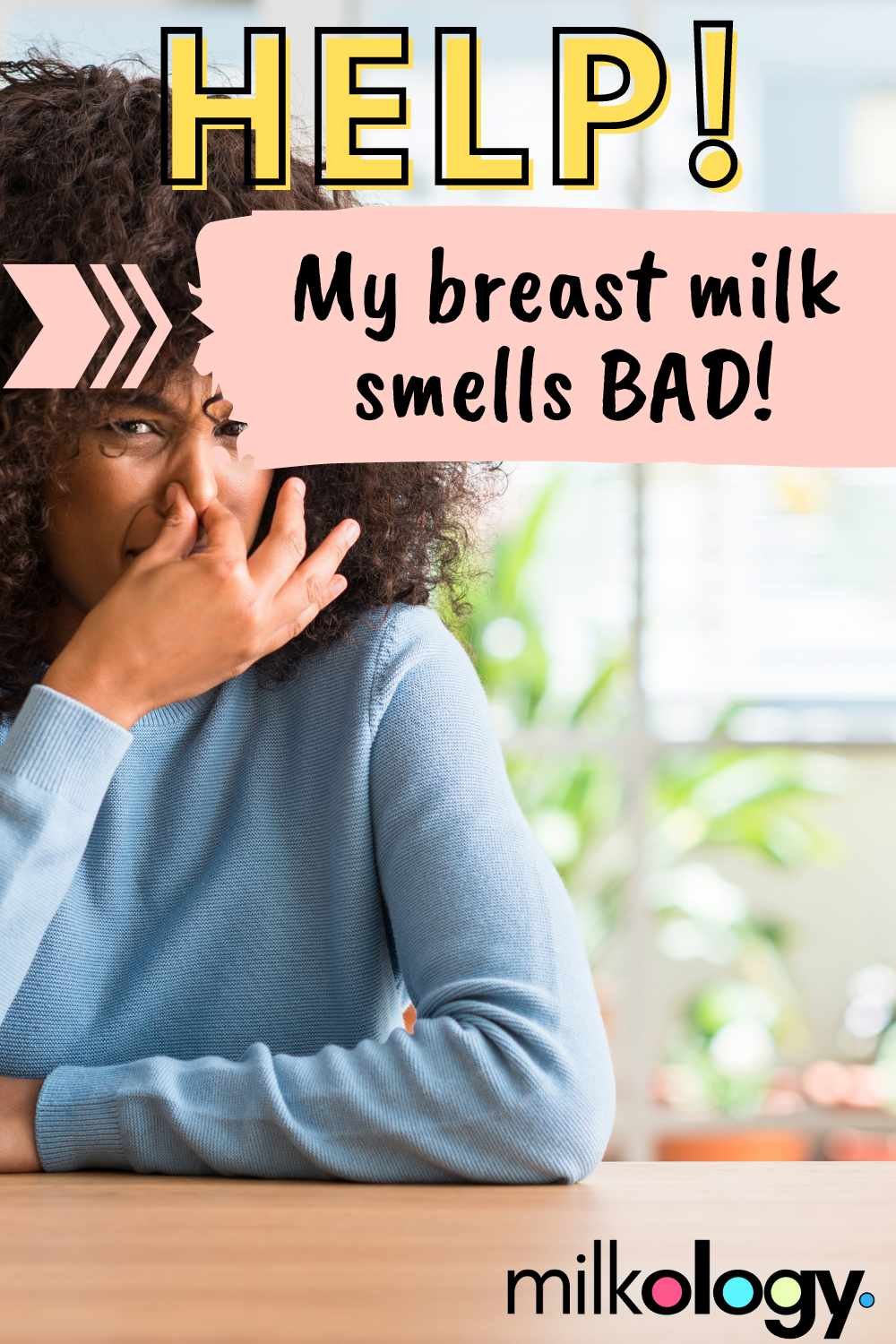My Breast Milk Smells Sour! Why?
Breast milk is considered liquid gold and every precious drop counts. So you definitely don’t want to toss it if you don’t have to.
But what if your breast milk smells bad? There could be several reasons for this and not all of them require throwing it out. Let’s explore.
(this post may contain affiliate links)
What does normal breast milk smell like?
Freshly expressed breast milk generally has very little odor.
It has a mildly sweet smell, but can have different smells depending on what foods you ate recently. It even might take on the smell of something it was sitting next to in the fridge that had a strong odor.
But what if it doesn’t smell mildly sweet at all and instead smells sour?
2 Reasons Breast Milk Might Smell Sour
Spoiled Milk
Spoiled milk happens when breast milk isn’t stored properly.
You can tell when breast milk is truly spoiled by the appearance and the smell.
It’ll have a strong “off”, rancid-like smell and might have chunks in it, similar to when cow’s milk is spoiled.
High Lipase levels in breast milk
Some moms notice that their breast milk smells soapy, sour, or even vomit-like. Some even describe their breast milk smelling like parmesan cheese. When this happens it’s possible the enzyme lipase is to blame.
All breast milk naturally has lipase in it. Lipase is an enzyme that breaks down fats in breast milk into smaller particles to make it easier for the baby to digest.
Some women have higher levels of lipase in their breast milk than others. When levels are too high, the enzyme continues to break down fat in the breast milk the longer it sits out, even after it’s frozen. This leads to the breast milk eventually smelling sour.
If you have high lipase activity in your milk, you may notice a stronger smell the longer it’s stored.
Even if your breast milk has high lipase, it’s STILL safe for your baby to drink, and many will drink the milk without any issues at all.
However, SOME babies might refuse high lipase milk.
NOTE: Once the milk becomes sour, there’s no way to reverse the smell/taste. Scalding breast milk only works to deactivate lipase BEFORE it starts to break down the milk.
If your baby refuses high-lipase breast milk. There are a couple things you can try:
Mix it up!
Try a 50/50 mixture of half freshly pumped breast milk with half of the stored breast milk.
Scald your breast milk.
Scalding breast milk helps to deactivate future lipase activity.
Once the milk becomes sour, there’s no way to reverse the smell/taste. Scalding breast milk only works to deactivate lipase BEFORE it starts to break down the breast milk.
To scald milk: Gently heat breast milk on low heat in a pan on the stove. (Do NOT boil.) Once the milk starts to bubble around the edges, take off the heat and cool quickly by placing the pan in a large bowl filled with ice water.
NOTE: Scalding milk removes some immune-boosting components of breast milk so if your baby willingly drinks high-lipase milk, it’s best not to scald the milk.
When freezing breast milk the best way to preserve essential nutrients is to use glass containers. Not all glass containers can freeze without cracking, but these do. Bonus? They’re the perfect size for storing breast milk!
Our 3 Fav Breastfeeding Products
🌛 1. This nursing bra is the absolute BEST for breastfeeding at night. It’s super comfy and made of the softest material ever.
💪 2. Boost supply and tone up postpartum. Grab this 28-day plan made just for breastfeeding moms — 50+ slimming, milk-boosting recipes and quick 20-min workouts (yep, even baby-wearing + pelvic floor ones!). Get 10% off Milky Mama’s Postpartum Plan using the code STACEY10 at checkout
🤱 3. If your nipples are sore,these are an absolute lifesaver. They’re super cheap, can be worn for multiple days (perfect when you’re trying to get a good latch), and are soooo soothing.
Related Article - 12 Things To Do With Expired Breast Milk

